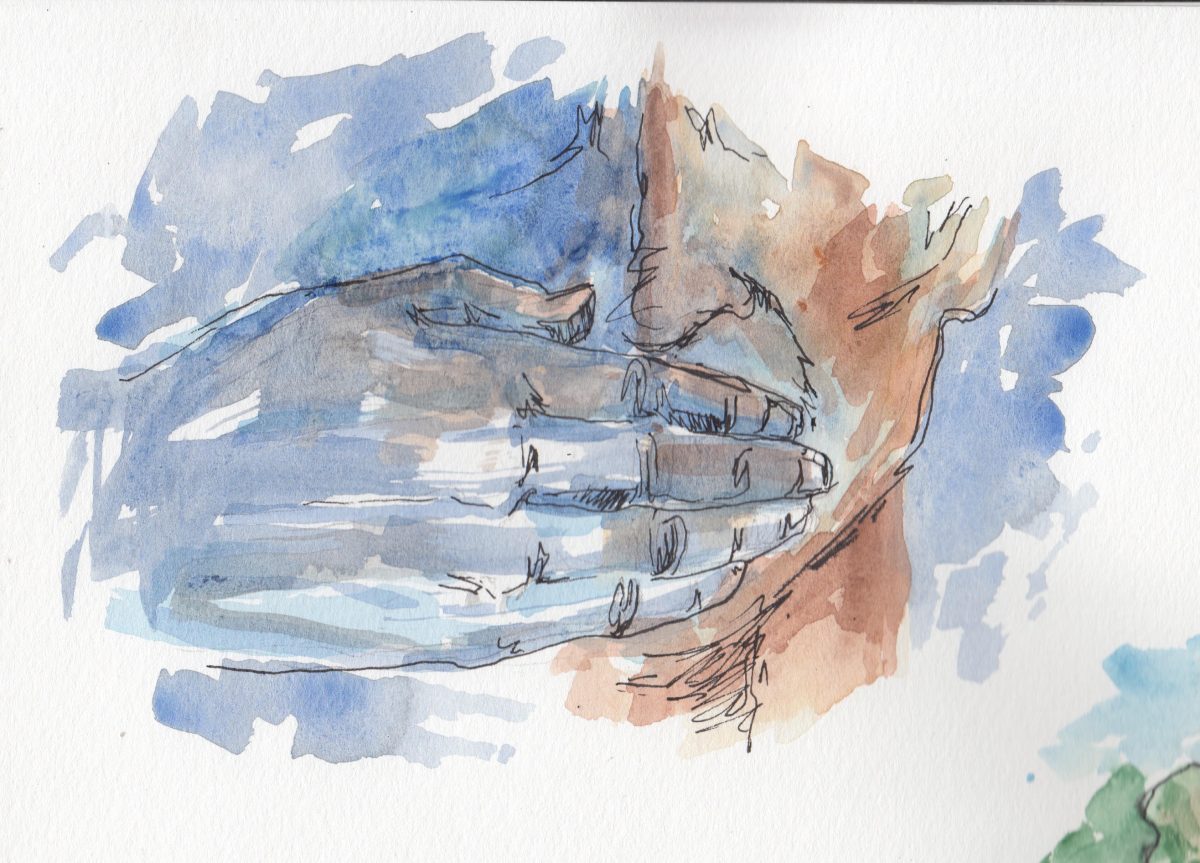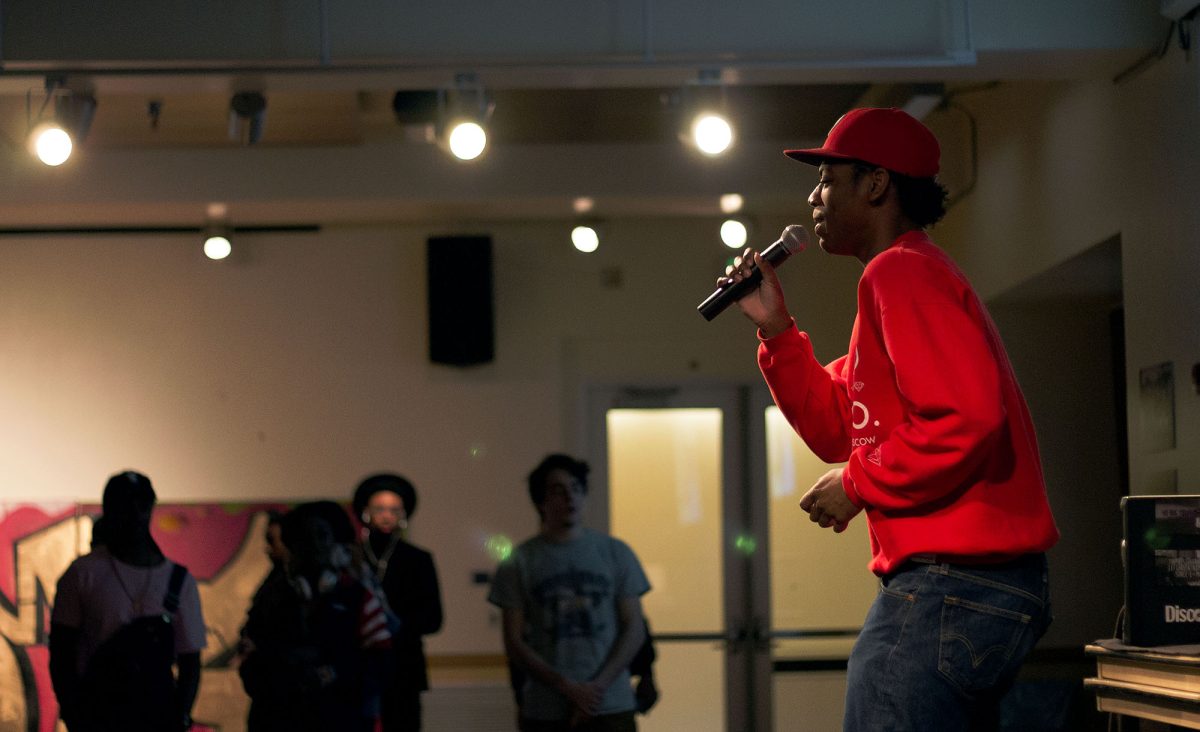Words by Kaylee Domzalski/ Illustrations by
A man who describes himself as family-oriented, intelligent, and hardworking is prohibited from voting by the state of Oregon’s constitution. Edmund Bradshaw, 49, is one of 14,648 individuals detained in Oregon’s prisons like the Oregon State Penitentiary who are barred from voting in November.
In the United States, whether or not an individual is excluded from voting because of a felony conviction – also known as felon disenfranchisement – is determined by each state. Because there is no federal law governing felon voting rights, there is a complicated patchwork of policies that vary state to state.
These policies range from permanent disenfranchisement for felonies to the restoration of these rights after completing a prison sentence, parole, or probation.
Two states – Maine and Vermont – allow convicted felons to vote while in prison through an absentee ballot. Not all prisoners in these states are disenfranchised.
Oregon is one of 14 states including D.C. that prohibit convicted felons from voting while incarcerated. However in these states, once a prisoner is released, the right to vote is restored.
There has been some momentum to change these laws in the state of Virginia: Governor Terry McAuliffe signed a bill on April 22 to grant voting rights to convicted felons in Virginia after serving their sentence. After the Virginia Supreme Court overturned this bill in July, McAuliffe personally pardoned the 13,000 Virginians it could have affected.
Despite their separation from civil life, prisoners at the Oregon State Penitentiary watch the local news and keep up with national politics through CNN and Fox News. Many, including Bradshaw, watched the primary debates. But with the election nearing, Bradshaw is faced with the issue of wanting to participate in the voting process, but being legally unable to.
“With everything that’s going on out there, as far as for voting, it’s going on in here, too,” Bradshaw, who is an avid Bernie Sanders supporter, says in a telephone interview from the Oregon State Penitentiary. “We just can’t vote.”
Since he started his 25-year prison sentence in 1996, Bradshaw has not cast a single ballot in the nine general elections that have taken place. Though he did not vote before the beginning of his prison sentence, Bradshaw says it is his civil duty to do so once he’s released.
“It’s something that I believe in now,” Bradshaw says. “In order to change the system you have to vote.”
The American Civil Liberties Union estimates that approximately 5.85 million people are unable to vote under these restrictions. It also cites the state of Iowa, where disenfranchisement has met a “disproportionate incarceration rate of black people…[resulting] in the disenfranchisement of an estimated one in four voting-age black men by 2005.”
The Sentencing Project, a national non-profit organization, estimates the total number of disenfranchised is around 2.5 percent of the population, or one in 40 Americans.
“Too often in both our distant and recent history, politicians have used their authority to restrict people’s ability to participate in our democracy,” McAuliffe said in a written statement.
But there is disagreement in terms of allowing prisoners to vote while incarcerated. Proponents argue that prison sentences are supposed to separate an offender from civil society. This separation naturally includes the loss of freedom and certain civil rights in order to reinforce the law.
Bradshaw understands this political view.
“I think that’s a right that we had,” he says. “It shouldn’t be taken. But I do understand it. You know when you go to prison you lose certain rights.”
Opponents of prisoner disenfranchisement argue that it undermines the rule of law and further separates a prisoner’s social connections. After release from prison, a convicted felon is less likely to become a repeat offender if he or she is able to find a stable job, housing, and community ties. Opponents see voting as a way to strengthen a prisoner’s sense of social responsibility, making it less likely for he or she to feel disconnected from society.
“I do believe that once a person gets out of prison that they should get their voting rights back,” Bradshaw says. “I can do things like a normal, productive citizen.”
Crystal Archdeacon, the public information officer for the Oregon State Penitentiary, did not respond to requests for comment. Betty Bernt, the Department of Corrections Communications Manager in Oregon, and Jeff Premo, the Oregon State Penitentiary Superintendent, also did not respond.
This lack of response from elected and public officials on felony disenfranchisement is not uncommon. Attempted communication between reporters and officials often results in unanswered phone calls, emails, and bureaucratic runaround.
But just because prison officials are cited as reluctant to talk about prisoner voting rights, does not mean prisoners are politically apathetic.
The most important topic inside the Oregon State Penitentiary are mandatory minimums, which are sentencing laws that set the minimum sentences for certain crimes. Bradshaw is under mandatory minimums for three counts of robbery.
“We’re expressing the same values” Bradshaw says. “If everyone could vote in here, they would. If we knew a politician working for mandatory minimums, there’s no way we’d vote for that guy.”
For Bradshaw, this means more than just being unable to vote on mandatory minimums. The disenfranchisement separates his ties with home.
“I’d love to be able to participate and vote and repeal that mandatory minimum so I can go home and try to be a father to my children, even though they’re adults,” Bradshaw says.
As with cases like Bradshaw’s, the effects of disenfranchisement can spread further than the walls of the prison, to impact felons’ relationships with family, and even further to impact their communities.
Categories:
The Election’s Muted Voice
Kaylee Domzalski
September 30, 2016
The Election’s Muted Voice
0
Donate to Ethos
Your donation will support the student journalists of University of Oregon - Ethos. Your contribution will allow us to purchase equipment and cover our annual website hosting costs.
More to Discover















